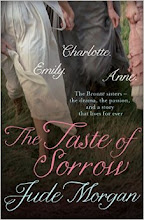I finished it today. And I find myself in a place I visit from time to time, a place known to all readers, a place that lies at the end of a perfect book; we wander around, picking up a novel or a biography that, when we bought it, we couldn't wait to start, but which now, in comparison with the book just finished, looks dull and two-dimensional. Put simply, no other book will now do. A bar has been raised, and I am frustrated at the lack of challengers to meet the new standard.
The Children's Book shifts, from its early arts-n-crafts idyll, into a darker, lonelier area. The children grow up. Events take hold. 1914 looms with bloody dramatic irony. Byatt gives us whole chapters as political instruction. The feel of the novel becomes altogether more charged, the last fifty pages or so reading almost as a textbook list of the names of those killed in the trenches. Ypres passes by and takes with it certain characters, then comes Passchendaele and the Somme, and more boys are lost; it is to Julian Cain that Byatt gives the voice with which to express this overwhelming pain. The final scene reminds me of Testament of Youth; I am left with the image of a post-war townhouse in which the remains of an extended family gropes its way towards a depleted future.
And yet, already when I think back over my month with this book - as I will do often, for it is that sort of book - I find it is within Olive's stories and the Wellwood gardens that my mind settles, or to Philip's pots and the marshland around Purchase House that my thoughts return. It is to that short Edwardian period in which the seeds of our modern world were sown that I (and I think many others, including Byatt herself) am drawn. It was a unique time amongst the privileged classes, and one which has come to define a certain England, and as I now pass over Anna Karenina and a new biography of Emily Dickinson in search of something in which I can live as I have lived inside The Children's Book, it is to that era that I long to turn again.
Tuesday, 16 February 2010
Subscribe to:
Post Comments (Atom)


2 comments:
I love your review...it makes me want to read this soon. I loved Possession but I couldn't get through some of her other novels. It's definitely time to give Byatt another try.
Welcome to the world of book blogging! I love your book choices so far and look forward to reading more from you.
Thank you! I really can't recommend The Children's Book highly enough, as you've probably gathered. I can understand why some people might not like it, as it is part-history-book, but I think if it's an era you're interested in - and if you enjoyed Possession - it has everything to recommend it. The characters are so alive - I miss them all desperately!
Post a Comment